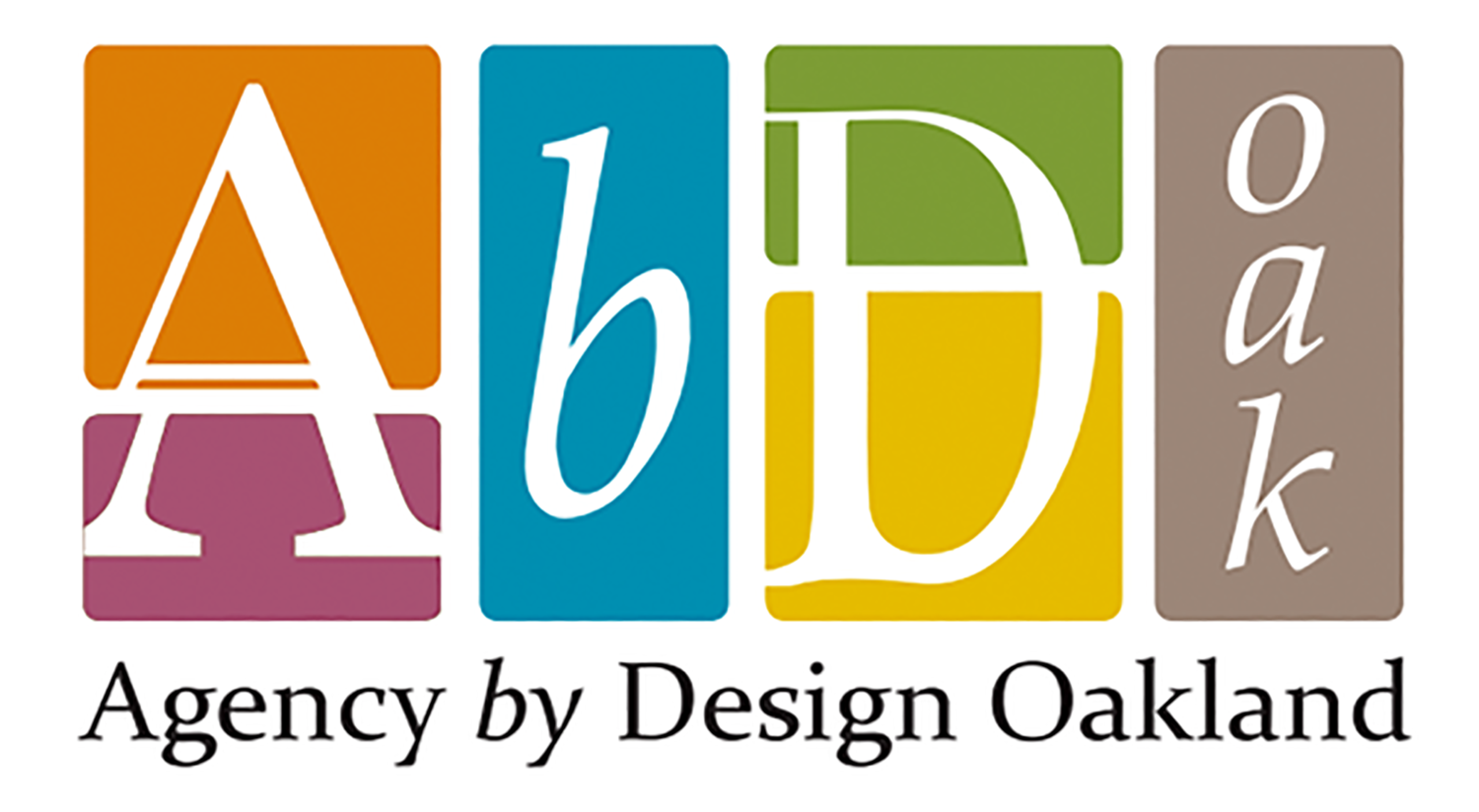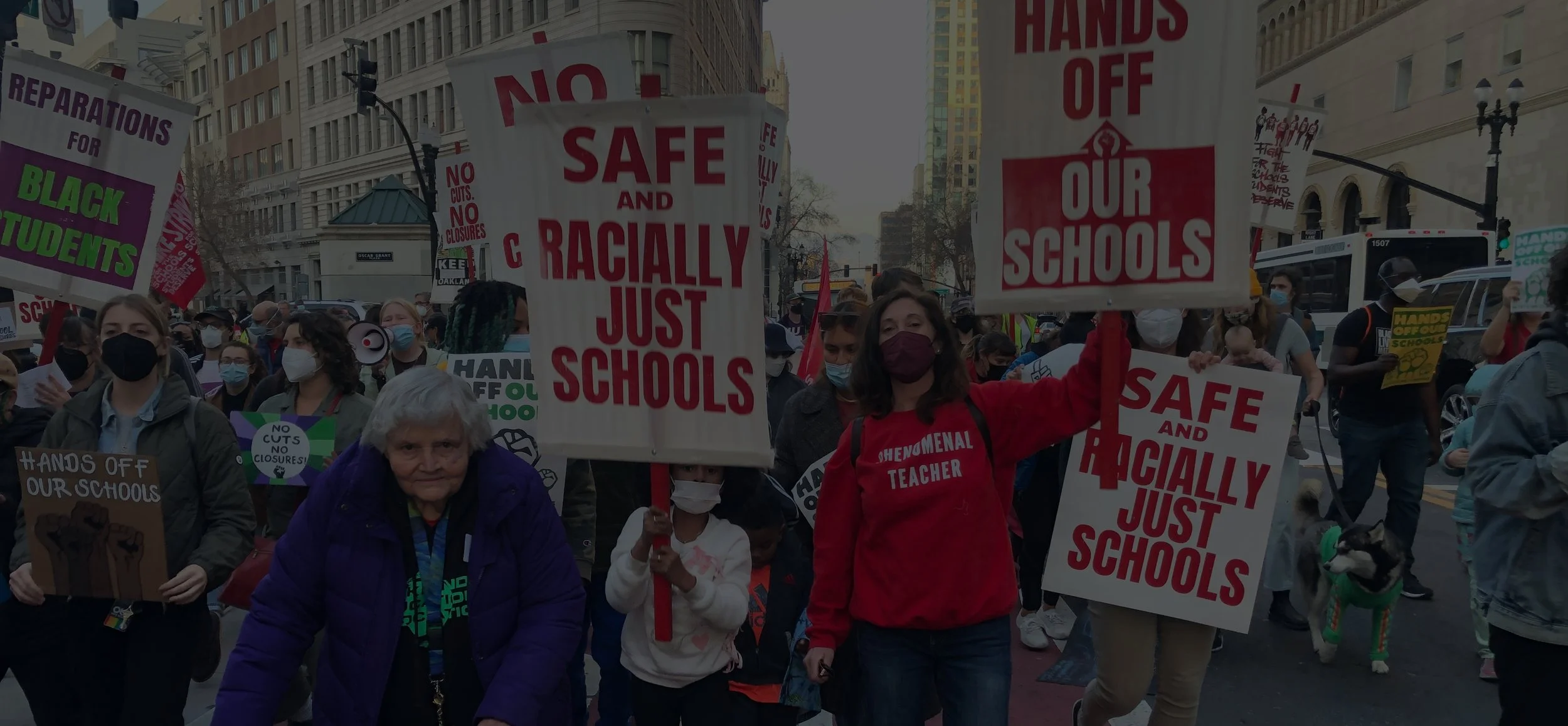Agency by Design Oakland is gathering a 2019 - 2020 cohort of Oakland educators to participate in a professional learning community focused on learner agency through maker-centered learning. The core of the experience is teacher action research, in which educators lead their own inquiry cycles dependent on their interests and students’ needs.
Throughout the year fellows will delve into the pedagogical framework and instructional strategies outlined in the book Maker-Centered Learning: Empowering Young People to Shape Their Worlds, the product of years of collaboration with researchers at Project Zero, at the Harvard Graduate School of Education. From implementing thinking routines to helping students find opportunity to remake the world around them, fellows will gain an understanding of how to design for agency. Because these practices are adaptable and powerful for all grade levels and disciplines, fellows need not teach in any sort of "maker" classroom, but be open to experimenting with new ideas and hands-on learning. Over the year fellows will experiment within their practice and reflect with the learning cohort.
Returning fellows will focus on leadership and school site change. These educators will be invited and supported in bringing these ideas back to their colleagues, which may include sharing frameworks, leading a PD, strategizing with school leadership, or other school site engagement.
All fellows will share their inquiries and leadership through an end-of-year community event and online presence. Please attend our 2018 - 2019 Fellowship Culminating Event on Saturday, May 4, 2019 to learn more! There will be ignite talks, workshops, and documentation displays. Check out the Eventbrite page for more information and to RSVP.
Details:
This fellowship will take place from August 2019 to May 2020 and is open to all Oakland public school educators, both district and charter. A limited number of Oakland private school educators may also be invited. While this application will be considered on an individual basis, we encourage teams of 2-3 educators to apply. Teams can include coaches and/or leadership. Returning fellows focused on leadership are especially encouraged to invite others from their site to apply.
We are currently seeking school partnerships to cultivate learner-centered practices over time. These partnerships include guaranteed teacher seats in the fellowship, one-on-one and small group coaching, school site professional development, and leadership support. Please email info@abdoakland.org to discuss your school’s needs and available grants.
Fellows will receive a stipend of $1,000 stipend for their participation. In addition, continuing education units (CEUs) from Sonoma State University will be available for purchase. Fellows will also have access to one-on-one coaching. For Title 1 schools, a substitute stipend or sub code, for three release days, will be made available. Childcare for after-school meetings is available upon request.
Agency by Design Oakland Fellows will commit to:
Attend three full-day professional developments throughout the school year. A substitute stipend or sub code for all three days will be made available to Title I schools. Dates will be announced early August.
Attend nine Tuesday after-school sessions, roughly once a month, 4:30 - 7:30 p.m. Dates and locations will be announced in early August.
Participate in and attend a culminating event showcasing inquiry work in May, 2020.
Engage in inquiry related to learner-centered practice and maker-centered learning, experiment within classroom practice, and reflect and share with the cohort.
Create “Pictures of Practice” documenting inquiry work, with the goal of sharing research with a broader audience, at both the culminating event and online. Possibilities include: writing a blog post, teaching a workshop, recording a podcast, or doing an ignite talk.
Application:
Please read through the Agency by Design Oakland and Agency by Design websites to learn about our work before completing the application.
The application questions are listed below to allow you the opportunity to think through what you hope to gain from this experience. Please submit your answers via Google form using the links below. The Application Deadline has been extended until Friday, May 24th, 5 pm. Accepted applicants will be notified by May 30, 2019.
Questions? Email info@abdoakland.org
For prospective fellows:
Please describe your teaching and learning context, including population demographics, learning needs, community culture, etc.
Does your school have an existing makerspace, maker program, or other related curricular initiative (project-based learning, arts integration, expeditionary learning, etc)? If so, please briefly describe. If you already incorporate maker-centered learning into your practice, please tell us how you are doing so.
How might your learners benefit from your participation as an Agency by Design Oakland Fellow?
What would you hope to gain from the Agency by Design Oakland Fellowship experience?
What about maker-centered learning resonates with you as an educator?
It is important that participants understand the time commitment involved with this experience and that Fellows are expected to attend all of the meetings and sessions listed above in full in order to get the full experience of the fellowship and build community with the cohort. How do you see this fellowship integrating into your anticipated schedule and workload?
For returning fellows:
If you are changing schools please update your school’s demographic information.
How are you incorporating maker-centered learning into your classroom practice?
What impact did your previous participation in the fellowship have on your learners, and how do you know?
Does your school have an existing makerspace, maker program, or other related curricular initiative (project-based learning, arts integration, expeditionary learning, etc.)? If you already incorporate maker-centered learning into your practice, please tell us how you are doing so.
What are your personal leadership interests and goals?
Please provide some context for your school’s instructional leadership. What opportunities and barriers are there for cultivating maker-centered learning at your school site?
Please describe why you are interested in maker-centered learning leadership at your school. What might you want to explore through your work in the fellowship and what would success look like?
What kinds of supports might the Agency by Design Oakland Leadership Team provide to you and your school?
It is important that participants understand the time commitment involved with this experience and that Fellows are expected to attend all of the meetings and sessions listed above in full, in order to get the full experience of the fellowship and build community with the cohort. How do you see this fellowship integrating into your current or anticipated schedule and workload?




















